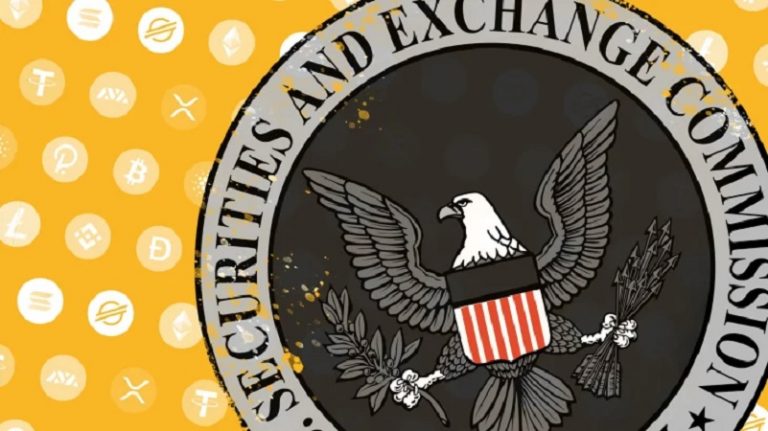A Look into U.S. SEC “DeFi and the American Spirit” Roundtables

U.S. Securities and Exchange Commission’s (SEC) Crypto Task Force is hosting a roundtable titled “DeFi and the American Spirit” on June 9, 2025, at SEC headquarters in Washington, D.C., from 1 p.m. to 5 p.m. ET. The event, part of the SEC’s “Spring Sprint Toward Crypto Clarity” series, is open to the public in person (registration required) and will be webcast live on SEC.gov without registration. It aims to explore regulatory challenges and opportunities in decentralized finance (DeFi), focusing on fostering innovation while ensuring investor protection.
Commissioner Hester M. Peirce, who leads the Crypto Task Force, emphasized that DeFi “exemplifies the promise of crypto, as it allows people to interact without intermediaries,” and she aims to create a regulatory environment where DeFi can thrive. The roundtable will include opening remarks, a main discussion on DeFi, a town hall Q&A session, and concluding remarks. Panelists include notable figures such as Rebecca Rettig (Jito Labs), Erik Voorhees (Venice AI), Jill Gunter (Espresso Systems), and Peter Van Valkenburgh (Coin Center), moderated by Troy Paredes of Paredes Strategies.
The event is the final in a series of five roundtables launched by Former Acting SEC Chairman Mark T. Uyeda on January 21, 2025, to address crypto asset regulation. Previous discussions covered topics like defining security status, crypto trading, custody, and tokenization. The Task Force seeks to establish clear regulatory frameworks, provide registration pathways, and craft sensible disclosure rules while moving away from enforcement-heavy approaches.
Register for Tekedia Mini-MBA edition 17 (June 9 – Sept 6, 2025) today for early bird discounts. Do annual for access to Blucera.com.
Tekedia AI in Business Masterclass opens registrations.
Join Tekedia Capital Syndicate and co-invest in great global startups.
Register to become a better CEO or Director with Tekedia CEO & Director Program.
The SEC’s “DeFi and the American Spirit” roundtable highlights significant implications for the future of decentralized finance (DeFi) in the U.S., exposing a clear divide between innovation-driven crypto advocates and regulatory authorities seeking to balance investor protection with market growth. The roundtable signals the SEC’s intent to move toward a clearer regulatory framework for DeFi, potentially reducing reliance on enforcement actions like SEC’s past cases against Uniswap or Compound. A structured approach could involve tailored registration pathways or disclosure rules, as emphasized by Commissioner Hester Peirce’s push for DeFi to thrive without intermediaries.
However, any new regulations could impose compliance burdens, potentially stifling smaller DeFi projects that lack resources to navigate complex legal requirements. The SEC aims to protect investors from risks like fraud, smart contract vulnerabilities, or rug pulls, which have caused significant losses in DeFi such as the $3.7 billion in DeFi hacks in 2022 alone, per Chainalysis. Clear rules could enhance trust and mainstream adoption.
Conversely, heavy-handed regulation risks pushing DeFi innovation offshore, as seen with projects relocating to jurisdictions like Singapore or the UAE due to U.S. regulatory uncertainty. The roundtable’s “American Spirit” theme underscores DeFi’s potential to democratize finance through permissionless systems, aligning with values of individual freedom and innovation. Panelists like Erik Voorhees, a vocal libertarian, may argue DeFi empowers users by bypassing traditional gatekeepers like banks.
However, regulators may highlight that DeFi’s pseudonymous nature enables illicit activities (e.g., money laundering), creating tension with anti-money laundering (AML) and know-your-customer (KYC) requirements. Positive regulatory outcomes could boost DeFi’s market, which had a total value locked (TVL) of $85 billion as of early 2025 (per DeFiLlama). Clarity might attract institutional capital, further legitimizing DeFi. Overregulation or enforcement missteps could suppress growth, driving projects to decentralized or non-U.S. jurisdictions, fragmenting the global DeFi ecosystem.
Figures like Voorhees and Rettig champion DeFi’s decentralized ethos, arguing it reduces reliance on centralized institutions, fosters competition, and empowers individuals. They view overregulation as antithetical to DeFi’s core principles. The SEC, led by figures like Former Acting Chairman Uyeda, prioritizes investor safeguards and market integrity, often requiring centralized oversight (e.g., registering DeFi protocols as securities). This clashes with DeFi’s permissionless, trustless model.
DeFi developers argue that existing securities laws don’t fit decentralized protocols, where no single entity controls operations (e.g., DAOs). Compliance costs could exclude smaller players, consolidating DeFi among well-funded entities. The agency sees many DeFi tokens as unregistered securities under the Howey Test, creating legal risks for non-compliant platforms. The roundtable may explore compromises, but the SEC’s enforcement history (e.g., $2 million Uniswap Labs settlement in 2024) suggests a hardline stance.
The SEC’s focus on compliance could position the U.S. as a safer but less competitive DeFi hub, potentially lagging behind jurisdictions with lighter regulations (e.g., Switzerland, Malta). Other countries are attracting DeFi projects with crypto-friendly policies, creating a risk that the U.S. loses market share. For example, Binance and other platforms have shifted operations to jurisdictions with clearer rules. DeFi’s appeal lies in accessibility for retail investors, offering high-yield opportunities (e.g., staking, liquidity pools).
However, they face risks from volatility and scams, which regulators aim to address. Large investors seek regulatory clarity to enter DeFi safely, but their involvement could shift DeFi toward centralized models, alienating grassroots users who value decentralization. The roundtable represents a critical opportunity to bridge these divides, with panelists like Jill Gunter and Peter Van Valkenburgh likely advocating for balanced policies that preserve DeFi’s innovative spirit while addressing regulatory concerns.
Success hinges on whether the SEC can craft rules that avoid stifling DeFi’s growth or pushing it offshore. Failure to find common ground could deepen the divide, fragmenting DeFi’s development and limiting its potential to reshape finance in the U.S.

